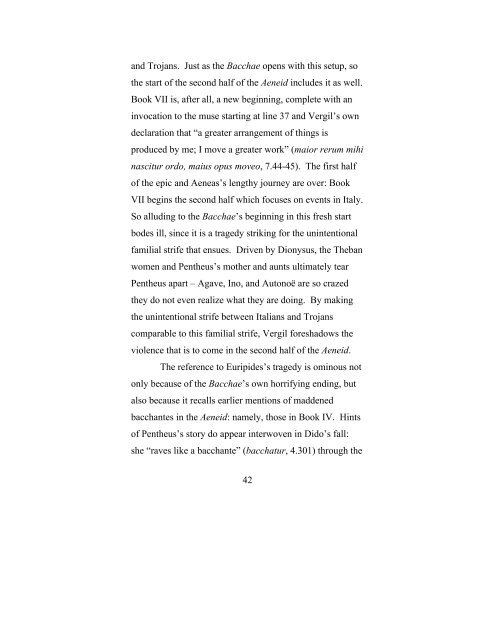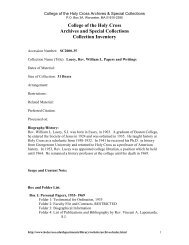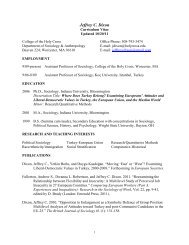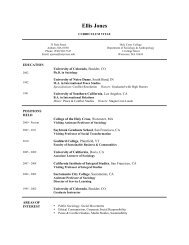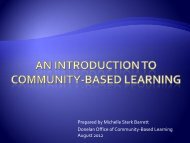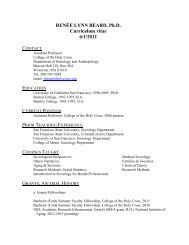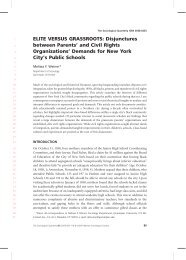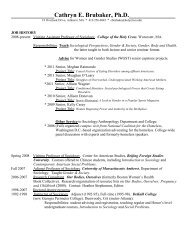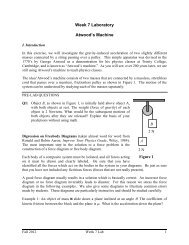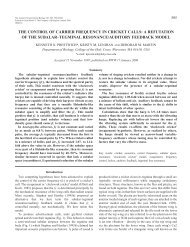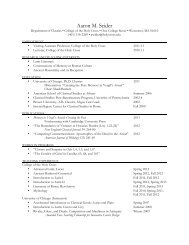Here - Academics - College of the Holy Cross
Here - Academics - College of the Holy Cross
Here - Academics - College of the Holy Cross
You also want an ePaper? Increase the reach of your titles
YUMPU automatically turns print PDFs into web optimized ePapers that Google loves.
and Trojans. Just as <strong>the</strong> Bacchae opens with this setup, so<br />
<strong>the</strong> start <strong>of</strong> <strong>the</strong> second half <strong>of</strong> <strong>the</strong> Aeneid includes it as well.<br />
Book VII is, after all, a new beginning, complete with an<br />
invocation to <strong>the</strong> muse starting at line 37 and Vergil’s own<br />
declaration that “a greater arrangement <strong>of</strong> things is<br />
produced by me; I move a greater work” (maior rerum mihi<br />
nascitur ordo, maius opus moveo, 7.44-45). The first half<br />
<strong>of</strong> <strong>the</strong> epic and Aeneas’s lengthy journey are over: Book<br />
VII begins <strong>the</strong> second half which focuses on events in Italy.<br />
So alluding to <strong>the</strong> Bacchae’s beginning in this fresh start<br />
bodes ill, since it is a tragedy striking for <strong>the</strong> unintentional<br />
familial strife that ensues. Driven by Dionysus, <strong>the</strong> Theban<br />
women and Pen<strong>the</strong>us’s mo<strong>the</strong>r and aunts ultimately tear<br />
Pen<strong>the</strong>us apart – Agave, Ino, and Autonoë are so crazed<br />
<strong>the</strong>y do not even realize what <strong>the</strong>y are doing. By making<br />
<strong>the</strong> unintentional strife between Italians and Trojans<br />
comparable to this familial strife, Vergil foreshadows <strong>the</strong><br />
violence that is to come in <strong>the</strong> second half <strong>of</strong> <strong>the</strong> Aeneid.<br />
The reference to Euripides’s tragedy is ominous not<br />
only because <strong>of</strong> <strong>the</strong> Bacchae’s own horrifying ending, but<br />
also because it recalls earlier mentions <strong>of</strong> maddened<br />
bacchantes in <strong>the</strong> Aeneid: namely, those in Book IV. Hints<br />
<strong>of</strong> Pen<strong>the</strong>us’s story do appear interwoven in Dido’s fall:<br />
she “raves like a bacchante” (bacchatur, 4.301) through <strong>the</strong><br />
42


